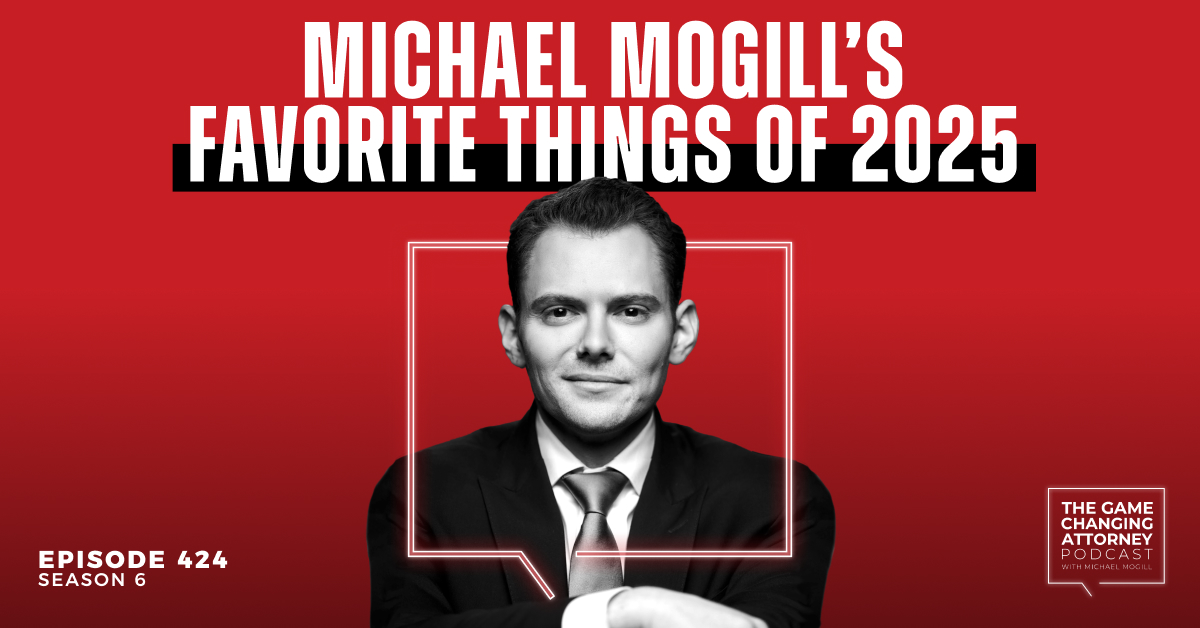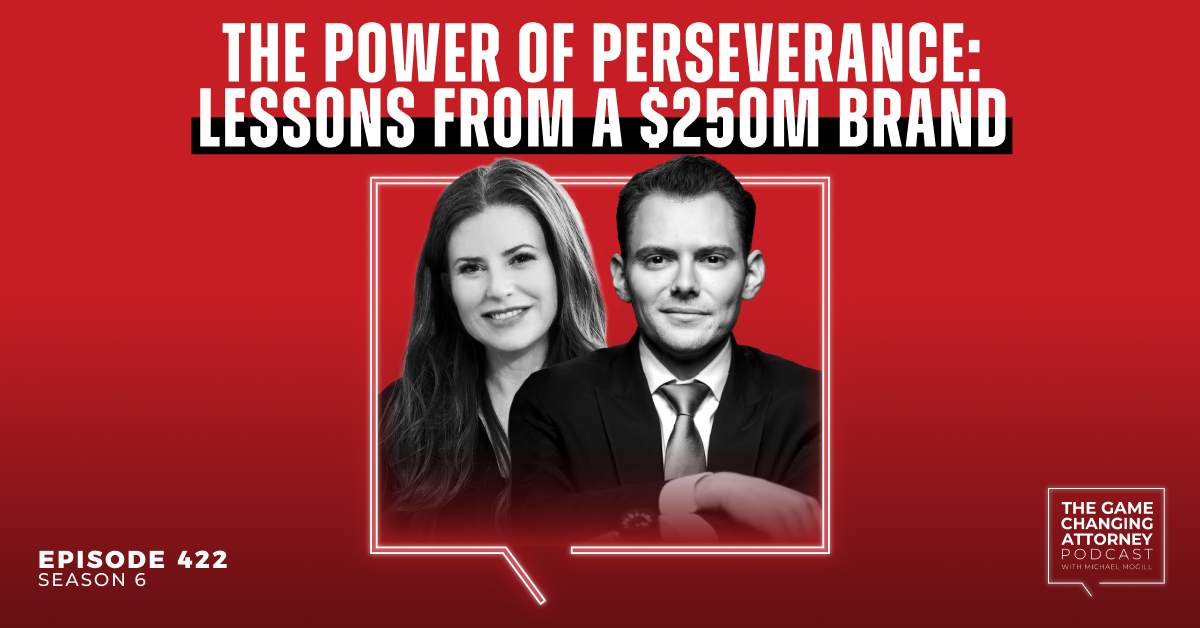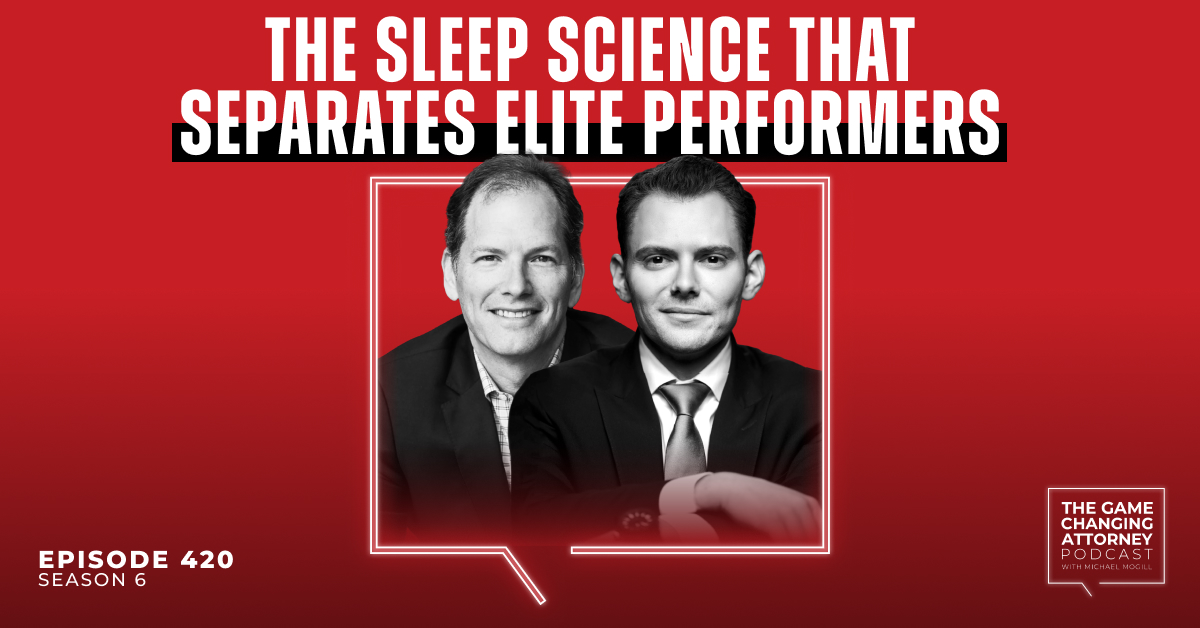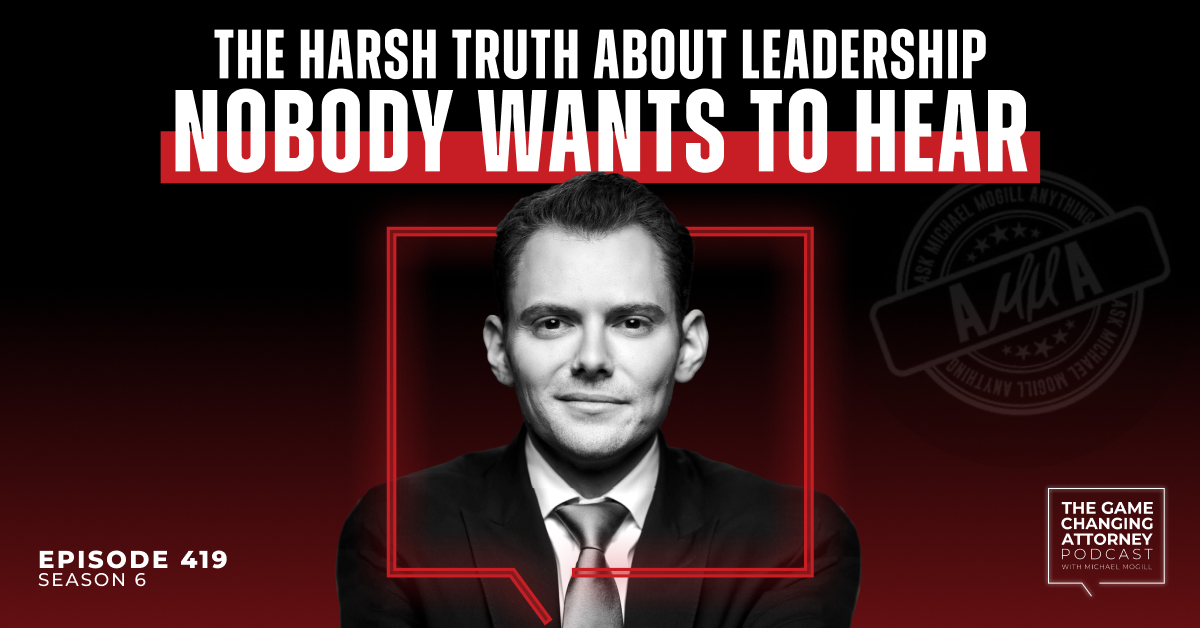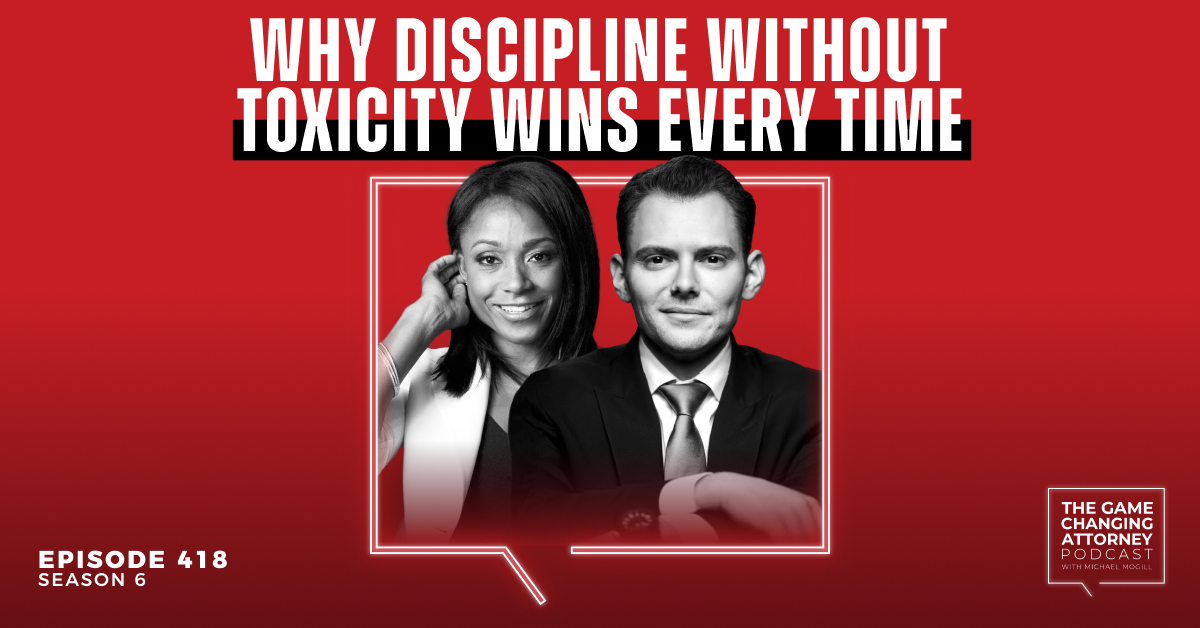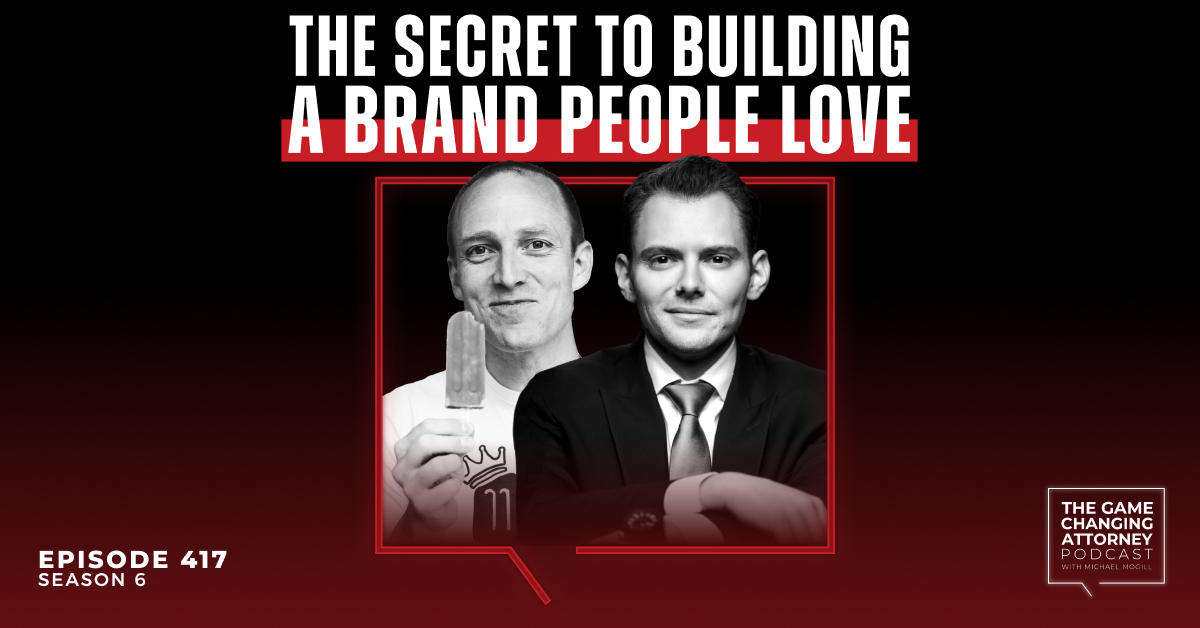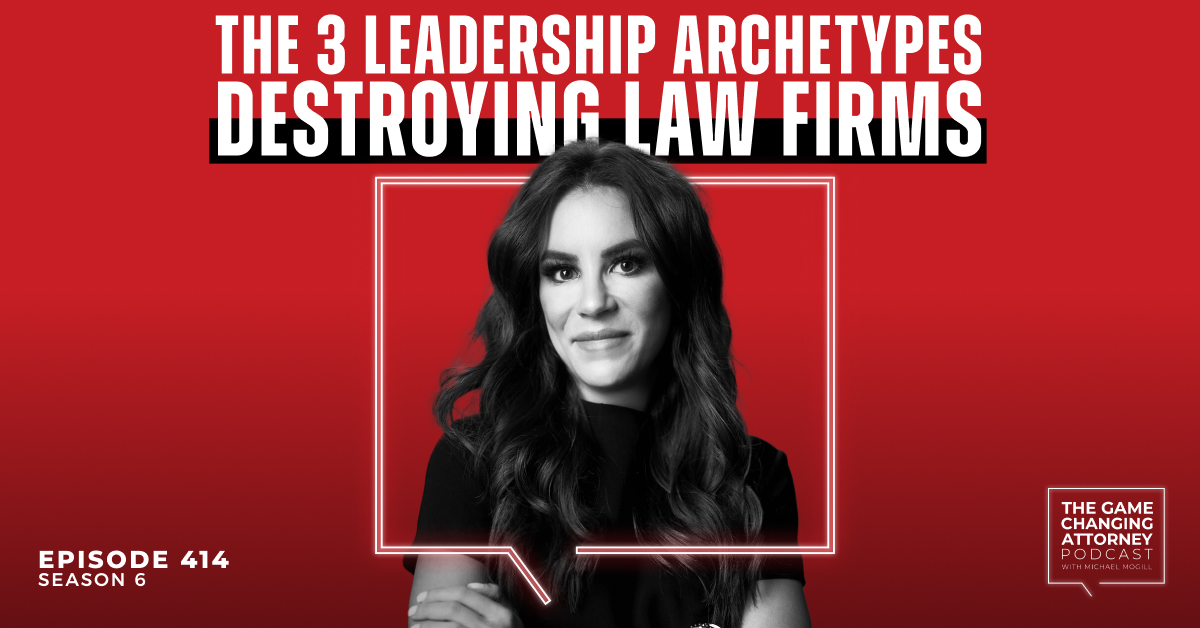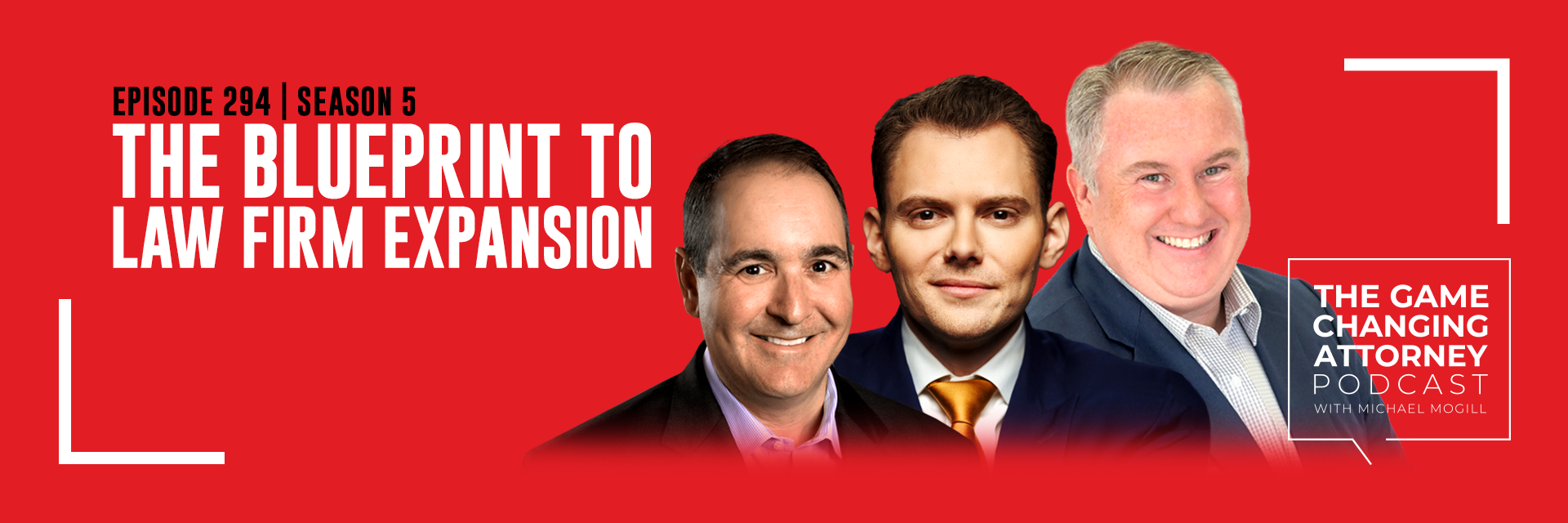
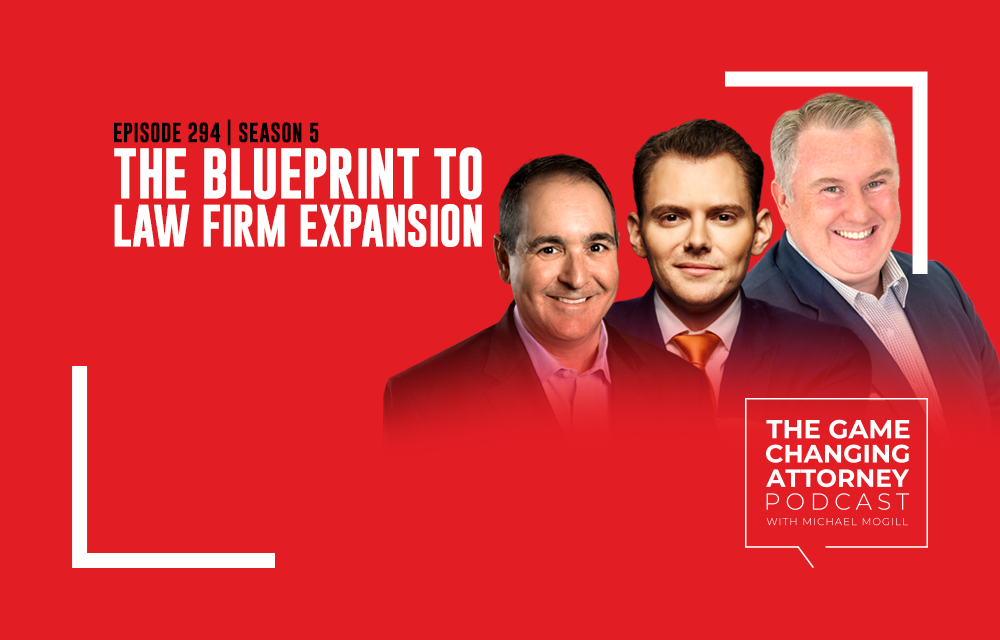
Episode 294 — The Blueprint for Law Firm Expansion
What if your law firm could shatter its growth ceilings and dominate your market?
Michael Mogill knows the secrets to make it happen.
In this electrifying episode of The Game Changing Attorney Podcast, we’re flipping the script and re-airing Michael’s recent conversation with Seth Price and Jay Ruane on The Law Firm Blueprint.
This trifecta of legal leaders reveal the critical steps to uncovering your firm’s blind spots, the ruthless discipline needed to avoid the pitfalls of mediocrity, and the bulletproof strategies to scale from a solo practice to a multi-million dollar empire.
Tune in now to learn:
- The secrets to driving sustainable growth in your law firm
- How to leverage digital marketing to stay ahead of your competition
- How to transform client experiences to attract and retain high-value cases
Listen & Subscribe
Show Notes:
Check your blind spots. “I’ve always viewed coaching as a means to help someone uncover blind spots they might not see. In the routine of daily activities, how can you be certain whether what you’re doing is right or wrong? Simply doing more doesn’t necessarily mean you’re learning. Knowledge isn’t truly powerful unless it leads to a change in behavior. Generally, behavioral change requires reflection, introspection, and self-awareness to recognize the need for different actions. Coaches excel in this because they aren’t emotionally tied to your situation and can offer greater clarity.”
Death by a thousand paper cuts. “There’s an expression that businesses are destroyed by paper cuts, not sledgehammers. Paper cuts are those small, sub-standard slips that occur when something or someone is tolerated for too long. It could be a process issue or an unengaged person who has been with the firm for a long time but their inefficiency or drama is cancerous to your organization. Initially, it’s not a problem — but eventually, it becomes one. You might ignore it, hoping it will go away on its own, but it soon turns into a massive issue. Whatever or whoever it is, the problem compounds and will be even harder to solve the longer you let it fester. The point is, you have to know what’s happening under the hood in your firm and shut these paper cuts down before they kill your business.”
Tasks don’t make a mindset. “If you just tell someone what to do, offer a bunch of helpful tips, introduce a cool app, or suggest something to improve workflow, they’ll get a dopamine hit from receiving valuable information. However, the problem is that very few will actually execute on it. Most will just say they have a lot of cool ideas. The first step is to admit there’s a problem and get into the right headspace. Mindset is the lens through which you see the world.”
Ask for help. “Only lawyers who aspire to be successful seek out coaching. Those with coaches tend to achieve the most success. The humility to ask for help and embrace new approaches requires a certain level of maturity and evolution. Conversely, those who believe they have everything figured out would never seek a coach. After all, why would they need one?”
Shiny Object Syndrome. “If you have a plan and you get some cool idea, then you say, ‘Let’s do this everybody!’ But if you do have a plan and you do have things laid out, then you take whatever new thing you want to do through some filter. Is it of higher impact and higher priority than something else? If not, then maybe we’ll look at it in the next quarter.”
Consistent execution. “I liken a lot of business goals to the goal of losing weight. When people start working out, they often lose a lot of weight initially, which is very motivating. It’s exciting because they’ve begun their journey perhaps drinking more water and getting more steps in. However, after the first 30 days, something changes. Typically, they’ll lose around 10 pounds in the first month and feel confident. But when the second month arrives, the weight loss slows down, they start to get discouraged, so they abandon their current plan and try something new. It’s important to understand that the first 30 days or few months are always exciting because of the novelty. However, real progress comes from the consistent, sometimes boring tasks that must be done over time. These efforts compound. Focus on what needs to be done each week and do it consistently. Often, it’s not about new or exciting changes but mastering the fundamentals. Your ability to stick to these basics can significantly dictate your progress. Many people and firms make the mistake of jumping from one thing to another without giving it enough time to work.”
- Jay Ruane
- Seth Price
- Tom Brady
- Alcoholics Anonymous
- Crisp Game Changers Summit
- Nick Saban
- Will Guidara
- Morgan Housel
- Ludacris
- Flo Rida
- Boyz II Men
- The Psychology of Money by Morgan Housel
- Same as Ever by Morgan Housel
Connect with Michael
- Text directly at 404-531-7691
